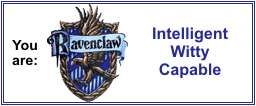 My Guantanamo Diary
My Guantanamo Diaryby Mahvish Rukhsana Khan
Perseus Group, 2008
Authors website
Mahvish Khan was born and raised in USA. Her parents were immigrants from Afghanistan. now both respcted medical doctors. Mahvish grew up speaking fluent Pushtu (the lingua franca language of Afghanistan) as well as English. In 2005 Mahvish was a student at the University of Miamai Law School.
She had been raised to believe that the USA was a good country and that it respected the laws of justice and democracy.
Until the camp at Guantanamo Bay opened up. Then she began speaking out against the USA for illegally imprisoning men without trials. Her fiance got upset and said - Well why dont you stop complaining and get yourself involved if you feel so strongly.
So Mahvish sat down and googled the names of the attorneys for the 2004 Supreme Court case Rasul vs Bush. Mahvish bombarded those lawyers with emails saying she wanted to help. Eventually she was put in touch with a lawyer in Philadelphia who had 15 Afghani clients at Gitmo. The lawyer had never been able to speak to his clients as he did not speak Pushtun and they didnt speak English. Finally Mahvish had something of value that the lawyers could use - her fluency in Pushtun.
The FBI took 6 months to complete her back ground security check and when it was finally granted, Mahvish was off to Gitmo in January 2006 for her first visit.
Her role with the detainees quickly developed past that of just interpreter. She began providing supervised legal counsel and traveled to Afghanistan to find exonerating evidence for prisoners.
During more than thirty trips to Guantanamo, Khan unexpectedly connected with the very men that Donald Rumsfeld called “the worst of the worst.” She brought them starbucks chai, the closest available drink to the kind of tea they would drink at home. And they quickly befriended her, offering fatherly advice as well as a uniquely personal insight into their plight, and that of their families thousands of miles away. As time went by Khan began to question whether Guantanamo truly held America’s most dangerous enemies. But regardless of each prisoner’s innocence or guilt, she was determined to preserve their most fundamental right, the right to a fair trial.
For Mahvish Rukhsana Khan, the experience was a validation of her Afghan heritage—as well as her American Freedoms, which allowed her to intervene at Guantanamo purely out of her sense that it was the right thing to do. Her story is challenging, brave, and essential test of who she is — and who we are.
Washington Post article on which the book is based









